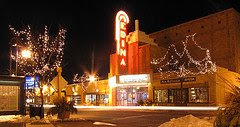Today we took a fourfold analysis quiz on pp. 110-142. Then, we talked about Okonkwo's banishment and the village culture.
Tomorrow you will have a vocab quiz (see words/definitions below). Also, please read pp. 143-167.
Things will fall very apart, very soon.
KING LEAR EXTRA CREDIT - MARCH 25 on PBS
http://www.pbs.org/wnet/gperf/episodes/king-lear/introduction/475/
This Document is also on Edline!!!
Due: April 7, 2009
Ms. Jarrett and Ms. Burgess
Enriched English 10
King Lear Extra Credit
Great Performances on PBS – March 25, 2009
Due: Tuesday, April 7th
Directions: Please answer the following questions in complete sentences. Your answers must be typed and double-spaced. Each answer should be numbered and should consist of at least a paragraph. In order to earn extra credit, you must complete the entire assignment. There is NO partial credit for this. The assignment is worth 10 points in total. We will be looking at these assignments side by side in order to determine that plagiarism has not occurred.
1. As in any performance of the plays, everything you see is a decision on the director's part. But this is heightened in a film, due to editing. There are fewer incidental mistakes or improvisations present, in that the director undoubtedly knows of these when they happen, but she or he can choose to edit them out. In a live performance, everyone lives with the inevitable mishaps that will occur on-stage. All this means that in a film when you notice anything that strikes you or stands out, you are probably noticing it because you are meant to. Keep a list of the things that particularly impressed you about the film. Do not overlook techniques unique to film--presentation of credits and title, for example, or sustained musical effects. Why did the director do these things? Are they united in some sense, pointing towards a larger effect overall?
2. Films can achieve many things that a performed play cannot: special camera angles, special effects, orchestral experimentation on a grand scale, more sets, realistic settings, etc. Look for the striking elements of this film that are unique to a film. What are they? How do they manipulate your feelings about the production? About individual characters?
3. Where did the director find her or his cast? Are they popular actors? Do they specialize in one form of acting or performance (i.e. music, as opposed to theater) or another? If you know that the guy playing Hamlet is a rap musician, for example, how does this affect the way you see this character? Are the majority of cast members known for their theatrical or Shakespearean performances? Is the presence of any one actor jarring to you as audience in some way? Are these actors well-known? Is the director relying on star appeal? Shock appeal? What are the ages of the cast? Do they seem appropriate to you? Can you explain any of the director's casting decisions?
4. How has the costuming been handled? Is it era specific or does it just imply the general feeling of an era without total accuracy? In other words, is it being used to convey a general impression or to set forth a historical era or both?
5. How is the music being used in this film? Are there specific themes for specific characters? How does the score affect your perceptions of the dialogue? Is the music overdone or intrusive?
6. What did this film teach you about this play that you had not gotten from reading it or seeing it staged? What would you change?
Subscribe to:
Post Comments (Atom)

1 comment:
Is the extra credit on 3rd or 4th quarter?
Post a Comment